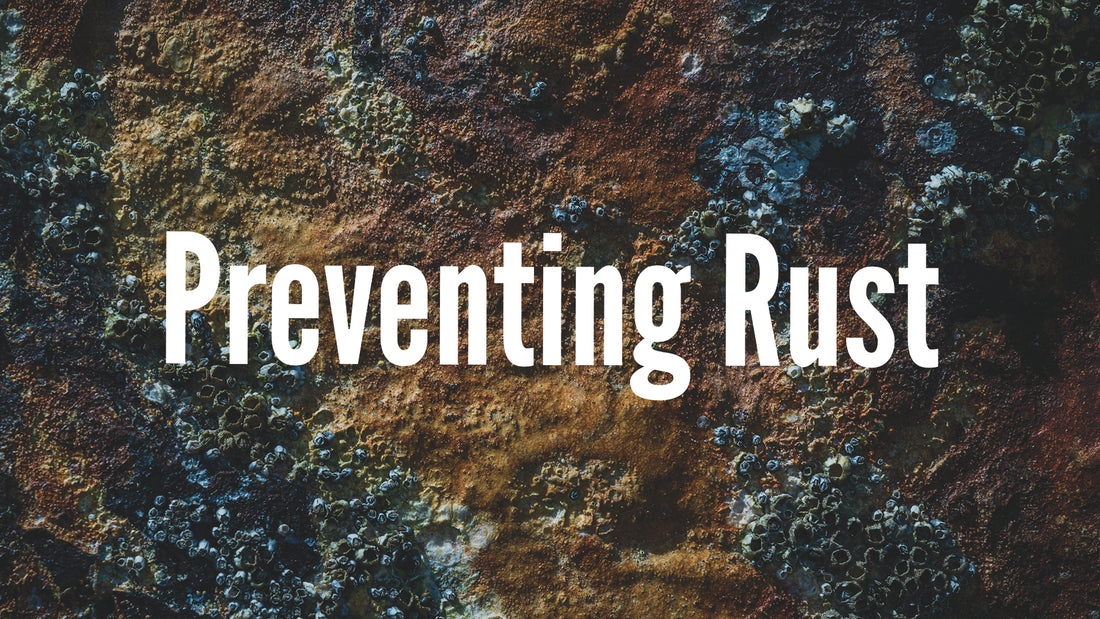Fishing gear is an investment, and to keep it performing at its best, regular maintenance is key. Rust can be a major problem for fishing equipment, particularly for those who fish in saltwater. Rust not only affects the appearance of your gear but can also impact its performance and lifespan. Here are some essential tips to help you keep your fishing gear rust-free and ready for your next adventure.
1. Rinse Your Gear After Every Use
Whether you’re fishing in fresh or saltwater, it’s crucial to rinse your gear with fresh water after each use. Saltwater is particularly corrosive, and even a thin layer of salt can lead to rust formation. Use a gentle stream of water to rinse off any salt or debris. For reels and other components, consider using a soft brush to remove any stubborn particles.
2. Dry Thoroughly
After rinsing, make sure to dry your gear completely. Water left on your equipment can promote rust and corrosion. Use a clean, dry cloth to wipe down your rods, reels, and other gear. Pay special attention to the moving parts and any areas where water can accumulate.
3. Lubricate Moving Parts
Regular lubrication is essential for preventing rust and ensuring smooth operation. Use a high-quality, corrosion-resistant lubricant designed for fishing reels. Apply the lubricant to all moving parts, including the gears, bearings, and line rollers. Be sure to follow the manufacturer's recommendations for lubrication intervals and amounts.
4. Store in a Dry Place
Proper storage is critical for keeping your fishing gear rust-free. Store your rods and reels in a dry, cool place. Avoid leaving them in damp or humid environments, such as a garage or basement. If possible, use rod and reel covers to protect them from dust and moisture.
5. Inspect Regularly
Regular inspections of your gear can help catch any signs of rust or corrosion early. Check for any spots or discoloration on your equipment. If you notice any rust, address it immediately to prevent further damage. For minor rust spots, you can often clean them off with a fine steel wool pad and then reapply lubricant.
6. Use Anti-Rust Products
There are various anti-rust products available on the market that can provide an extra layer of protection for your gear. Consider using rust inhibitors or protectant sprays specifically designed for fishing equipment. These products create a barrier against moisture and salt, helping to keep rust at bay.
7. Maintain Your Line
Don’t forget about your fishing line! While not directly related to rust, a well-maintained line contributes to overall gear performance. Regularly check your line for any damage or wear and replace it as needed. A good-quality line can also resist rust and corrosion better than cheaper alternatives.
8. Perform Regular Maintenance
Routine maintenance is key to prolonging the life of your fishing gear. Follow the manufacturer’s maintenance schedule for servicing your reels and other equipment. Regular cleaning, lubricating, and inspection can prevent rust and ensure your gear remains in top condition.
Conclusion
Rust can be a serious issue for fishing gear, but with proper care and maintenance, you can keep your equipment in excellent condition. By rinsing, drying, lubricating, storing correctly, and performing regular inspections, you’ll extend the life of your gear and ensure it’s always ready for your next fishing trip. Happy fishing!

